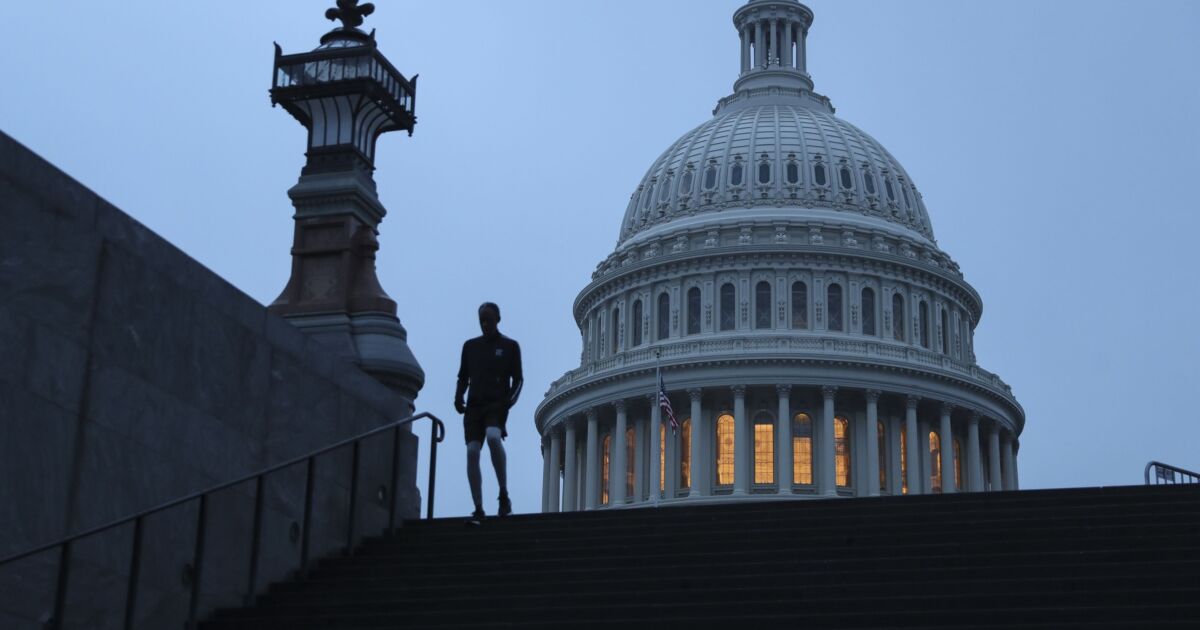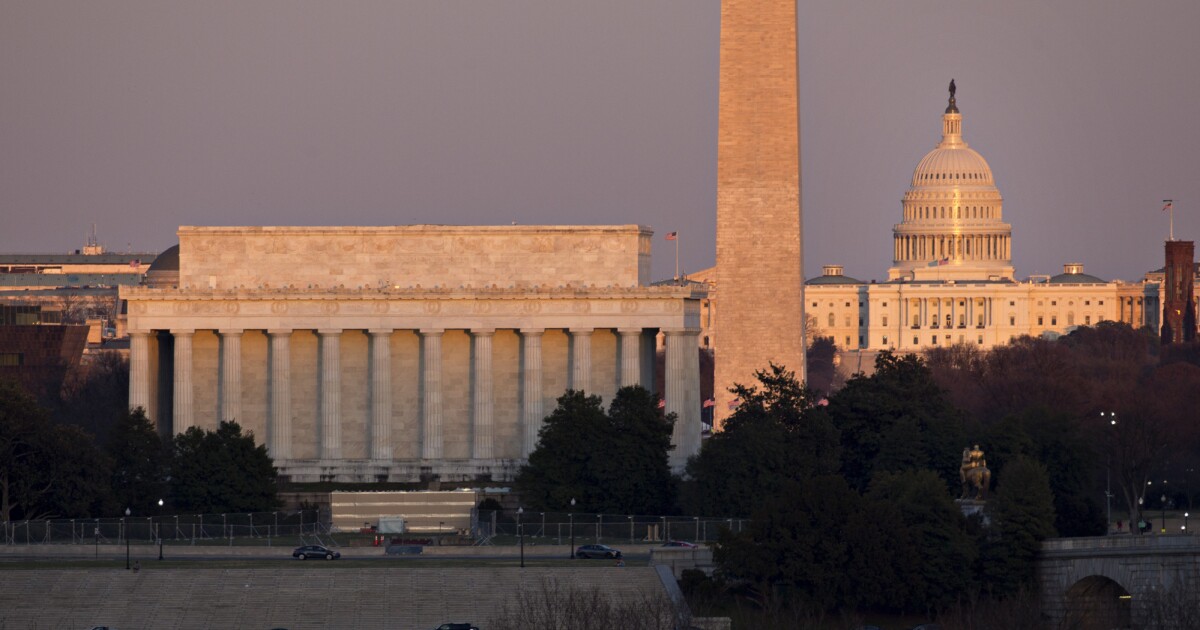The House Ways and Means Committee held a hearing Tuesday to mark up the so-called “one, big beautiful bill” extending the expiring provisions of the Tax Cuts and Jobs Act while adding other tax breaks for tip income, overtime pay and Social Security income and eliminating tax credits from the Inflation Reduction Act for renewable energy as well as the Direct File and Free File programs.
“Today, this Committee will move forward on President Trump’s promise of delivering historic tax relief to working families, farmers and small businesses,” said committee chair Jason Smith, R-Missouri, in his opening statement. “The One Big Beautiful Bill is the key to making America great again. This moment has been years in the making. While Democrats were defending IRS audits on the middle class and tax carveouts for the wealthy, Republicans on this Committee got on the road, to hear from real Americans about how the 2017 tax cuts benefited them. This bill wasn’t drafted by special interests or K Street lobbyists. It was drafted by the American people in communities across the country.”
Democrats blasted the bill. “In 2017, Republicans passed a tax law that was supposed to pay for itself, raise wages, and help working families,” said ranking member Richard Neal, D-Massachusetts. “None of that happened. Instead, it exploded the deficit, worsened inequality, and left everyday Americans behind. Now they want to double down on the same failed playbook. One that rigs the system for billionaires and big corporations while everyone else pays the price.”
Among the provisions, the bill would make the expiring rate and bracket changes of the TCJA permanent and increase the inflation adjustment for all brackets excluding the 37% threshold, according to a summary from the Tax Foundation. The bill would also make the expiring standard deduction levels permanent and temporarily increase the standard deduction by $2,000 for joint filers, $1,500 for head of household filers and $1,000 for all other filers from 2025 through the end of 2028. It would also make the personal exemption elimination permanent, and make the $750,000 limitation and the exclusion of interest on home equity loans for the home mortgage interest deduction permanent. It would also make the state and local tax deduction cap, also known as the SALT cap, permanent at a higher threshold of $30,000, phasing down to $10,000 at a rate of 20% starting at modified adjusted gross income of $200,000 for single filers and $400,000 for joint filers.
Other changes and limitations to itemized deductions would be made permanent, including the limitation on personal casualty losses and wagering losses and termination of miscellaneous itemized deductions, Pease limitation on itemized deductions, and certain moving expenses.
The bill is likely to go through some changes when it goes to the Senate. “Politically, we’ve been talking about the process for the last couple months,” said Mark Baran, managing director at CBIZ’s national tax office. “Congress is finally able to pass a concurrent resolution to unlock the budget reconciliation process.”
“The House and the Senate have completely different instructions on what they’re going to cut and how they’re going to score,” he added. “Some of that’s very controversial, and that needs to be worked out. But now we’re getting into the actual crafting of provisions and legislation.”
According to a summary on the CBIZ site, the bill would make permanent and increase the Section 199A pass-through entity deduction from 20% to 23%, also known as the qualified business income, or QBI, deduction. The bill includes provisions that open the door for pass-through entity owners in specified service industries to use the deduction. It would also extend current deductions for research and experimental expenses through Dec. 31, 2029, and extend 100% bonus depreciation through that same date.
The bill would also allow businesses to include amortization and depreciation when figuring the business interest limitation through Dec. 31, 2029, while making permanent the excess business loss limitation.
In addition, the bill would retroactively terminate the Employee Retention Tax Credit for taxpayers who filed refund claims after Jan. 31, 2024.
In keeping with Trump campaign promises, the bill would eliminate taxes on tips for employees in certain defined industries where tipping has been a traditional form of compensation. There would be a new $4,000 deduction for seniors that phases out starting at $75,000 of income. The bill would also eliminate taxes on overtime pay.
The bill would give individuals an above-the-line deduction for interest on loans used to purchase American-made cars, but that would be capped at $10,000 with income phaseouts starting at $100,000 (single) and $200,000 (married filing jointly).
The bill would also increase taxes on certain private college investment income up to a maximum of 21% on universities with a student-adjusted endowment above $2 million.
It would also roll back some of the renewable energy provisions from the Inflation Reduction, including a phaseout and restrictions on clean energy facilities starting in 2029, while also limiting or eliminating clean housing energy and vehicle credits. The bill would sunset major IRA clean electricity tax credits, including the clean electricity production tax credit (45Y), clean electricity investment tax credit (48E), and nuclear electricity production tax credit (45U) begin phasing out after 2028 and finish phasing out by the end of 2031; repeal hydrogen production credit (45V) for facilities beginning construction after 2025, according to the Tax Foundation. It would also phase out advanced manufacturing production credit (45X) for wind energy components after 2027, for all other eligible components after 2031. Across several IRA clean energy credits, the bill would repeal transferability after the end of 2027 and further limit credits based on involvement of foreign entities of concern. On the other hand, it would expand the clean fuel production credit (45K), and tighten rules on the 126(m) limitation for executive compensation.
The bill would terminate the current Direct File program at the Internal Revenue Service and establish a public-private partnership between the IRS and private sector tax preparation services to offer free tax filing, replacing both the existing Direct File and Free File programs.


 Accounting1 week ago
Accounting1 week ago
 Economics1 week ago
Economics1 week ago
 Personal Finance6 days ago
Personal Finance6 days ago
 Personal Finance4 days ago
Personal Finance4 days ago
 Personal Finance4 days ago
Personal Finance4 days ago
 Economics5 days ago
Economics5 days ago
 Economics5 days ago
Economics5 days ago
 Economics5 days ago
Economics5 days ago










